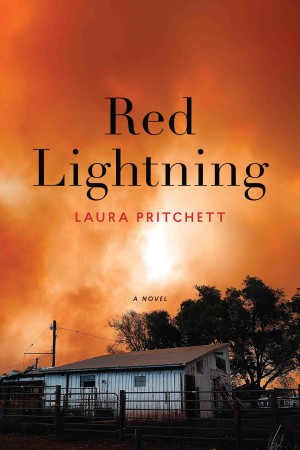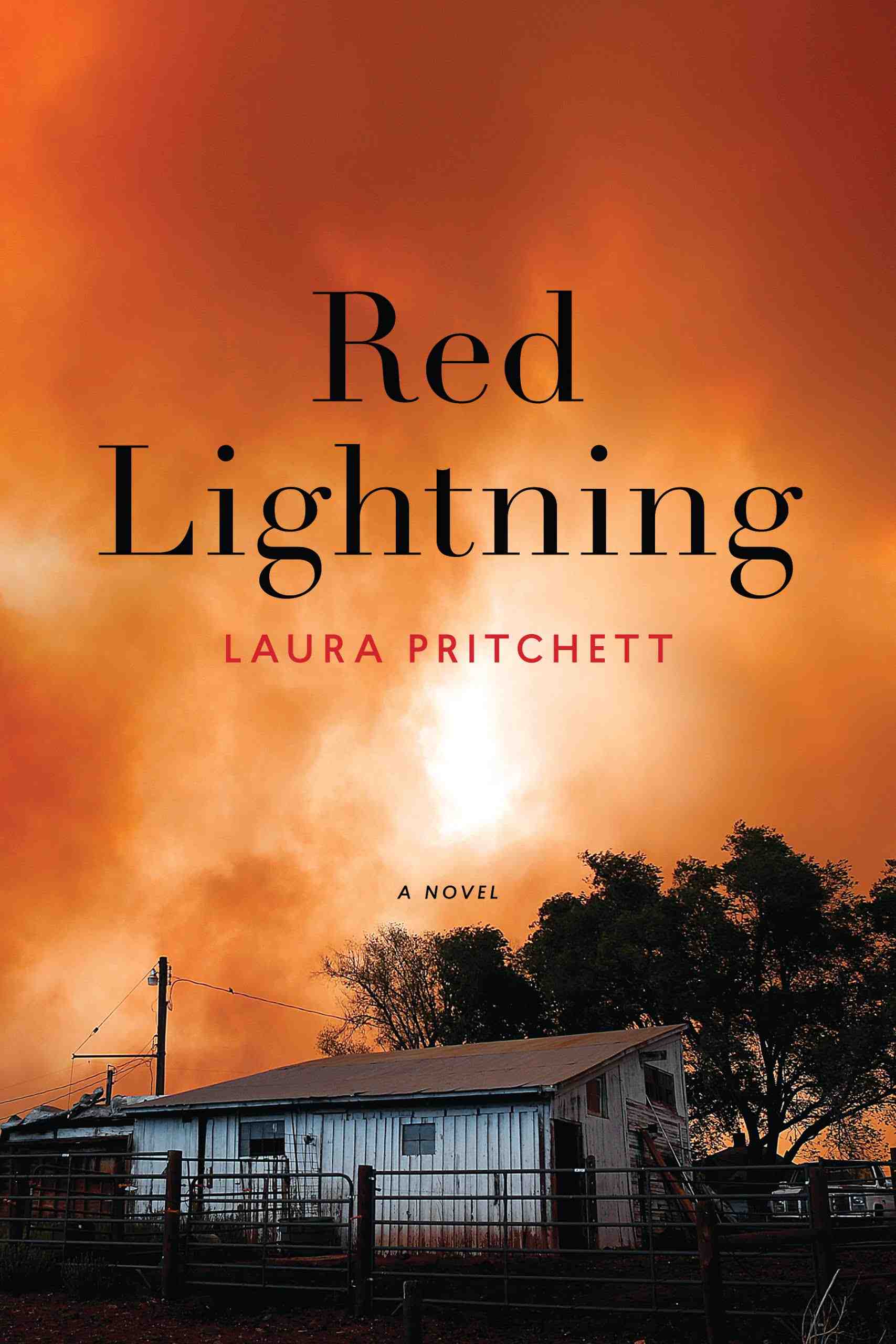Red Lightning: A Novel
By Laura Pritchett
Counterpoint, hardback, 208 pp, $24
ISBN: 9781619025332 1619025337
Reviewed by Annie Dawid
 What would be the relief in redemption if it were a simple sorry, forgive me? Grace is not achieved so easily. Redemption is to purchase back something previously sold, the recovery of something pawned or mortgaged, the effort it takes to make things right.
What would be the relief in redemption if it were a simple sorry, forgive me? Grace is not achieved so easily. Redemption is to purchase back something previously sold, the recovery of something pawned or mortgaged, the effort it takes to make things right.
Tess, the protagonist of Colorado author Laura Pritchett’s latest novel, Red Lightning, interrogates herself in such rigorous language through the story. Missing for ten years from home, an Eastern Colorado town called NoWhere, Tess shows up wounded, damaged inside and out, beside her sister at the local elementary school. There they watch Amber, the daughter Tess gave birth to and immediately deserted, enter the old building both sisters once attended.
For a decade, Tess has roamed the Southwest while her sister, Libby, and husband, Ed, have raised Amber with love and care and dedication; she is their daughter. We do not know why exactly Tess has chosen this moment to return home. Pritchett offers hints: a wildfire burning in the mountains, a gun Tess might be planning to use on herself as an answer to her multitudinous problems, undocumented immigrants from Mexico along with a drug delivery gone missing.
Although Red Lightning has an out-of-today’s-headlines kind of plot, the real story here is about the ability and/or inability of a very damaged soul to heal. Pritchett also speaks to the question and possibility of forgiveness, embodied in the person of Libby: big sister, nurse, caretaker, mother, wife, friend.
Thank God for my sister, who seems to be willing to keep her heart open for at least a moment despite all the very good reasons not to, proving, I suppose, that we humans are kinder and more generous than whatever god struck us into life.
The reader spends most of the book in Tess’s head, observing the world in first person, and sometimes in third person, where Pritchett has Tess regarding herself as a distinctly other entity.
[InContentAdTwo]
These third-person remarks are separated from the rest of the text by the use of verse-like prose, indented from the margins and lineated as poetry. Indeed, Tess is a genre of poet, with her invention of verbs and unusual phrasing: “The shower and cakebaking and sunsleeping have fragiled me – somehow I am less sturdy than I was this morning.”
At times, Tess’s phrasemaking can distract from the substance of her trajectory, an unwanted break in the dream, yet this distinctive use of language can also thrill the reader with its beauty.
The novel is divided into five sections: wind, water, fire, air and earth, in that order. Central Coloradans will find particular resonance in the descriptions of wind, a force that drives wildfires and destroys lives; Tess believes she is, in part, responsible for the massive conflagration described by media as Colorado’s biggest ever – an appellation that seems to renew itself with unsettling frequency in recent years. Her guilt is the engine that drives her – not only regarding the fire, but concerning the fate of a number of immigrants who have depended on her.
Tess may strike some readers as overly self-punishing; we all know women like her, those obsessively self-destructive souls who have such trouble being kind to themselves, usually as a result of lacking such kindness as children. Her mother was hard: a rough and tough character who showed little mercy. Yet she managed to draw the love of a man, Baxter, who acted as stepfather to Tess and her sister.
Kindness actually takes an enormous amount of energy, Tess, but it’s always worth it. It’s like an elemental energy. Like wind, like fire, like water.
Readers will follow the twisting plot that mirrors the hard turning and reversing of Tess’s spirit. While much of her history is bleak, Tess manages to find succor in the landscape: “I know I’ll find redemption in the red earth and the howl of coyotes and the blue sky.”



